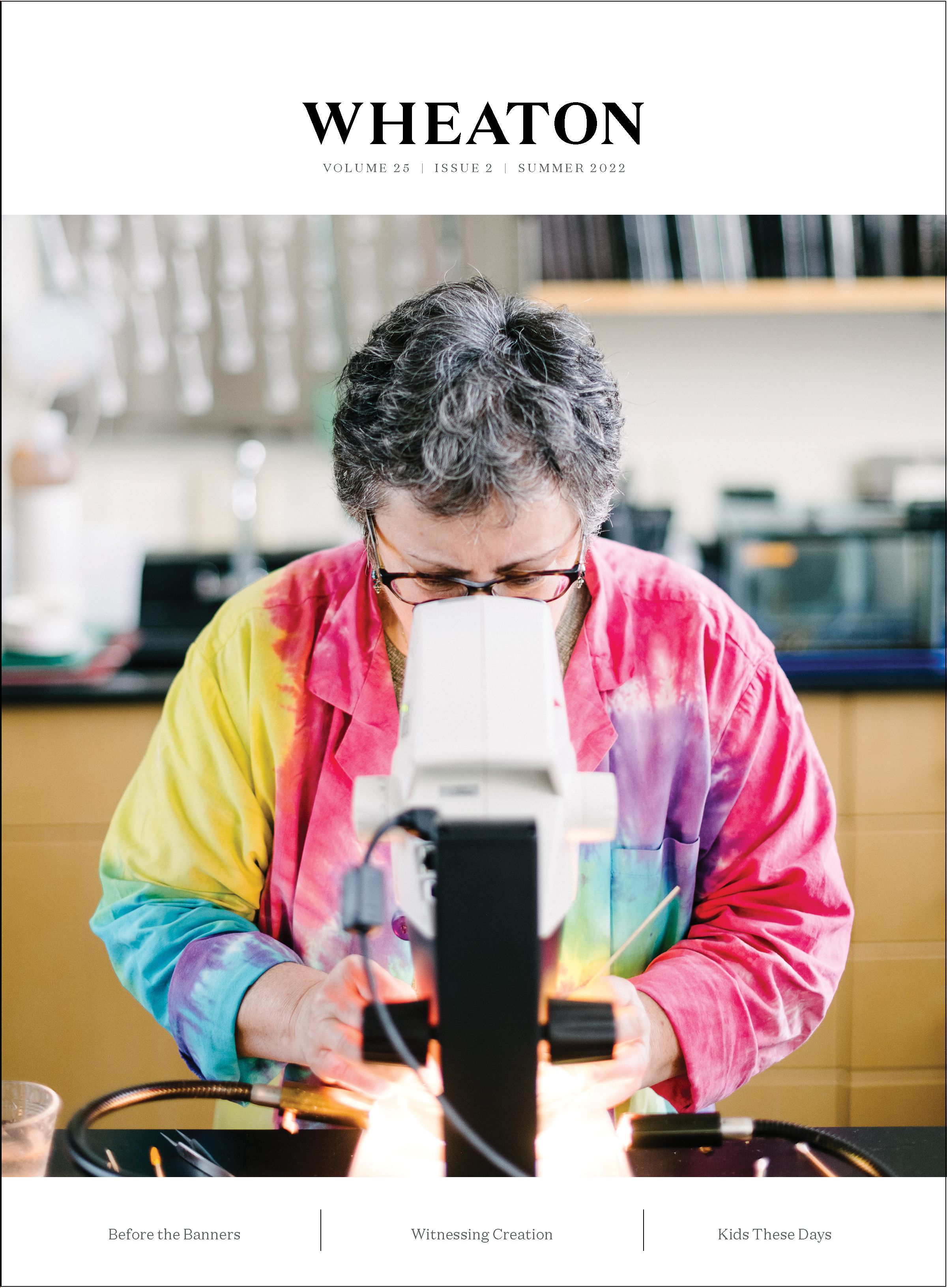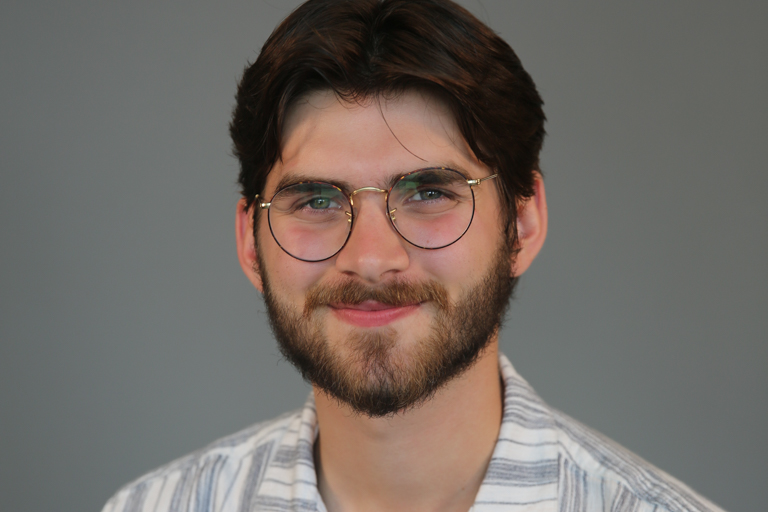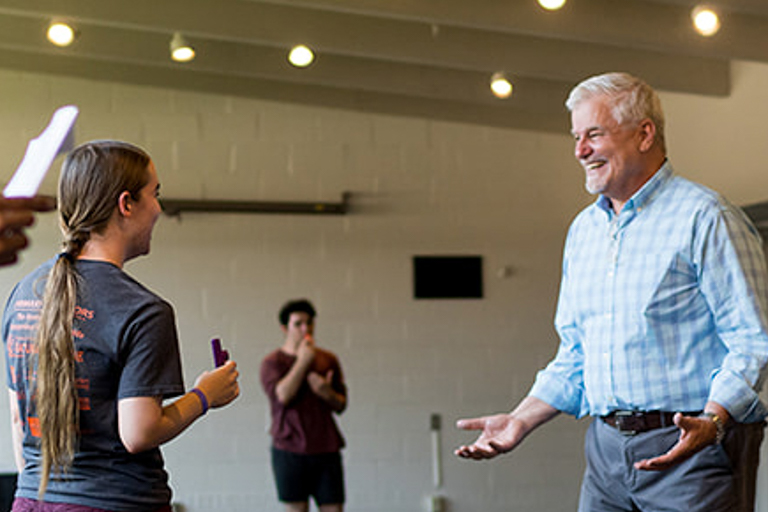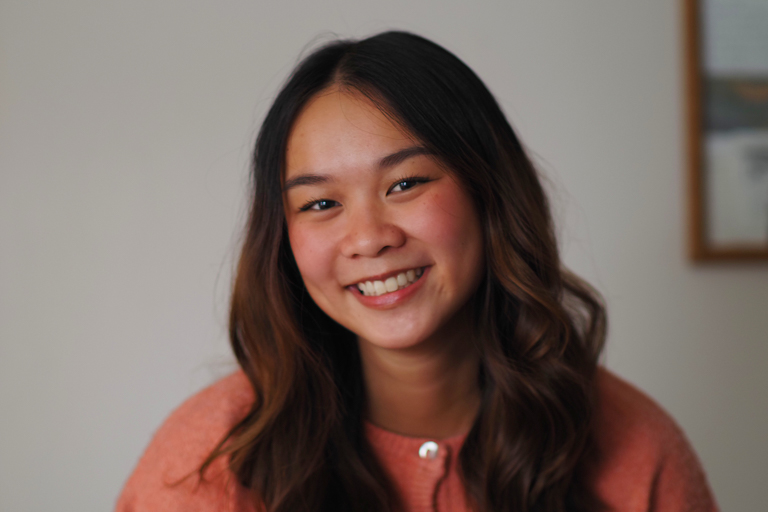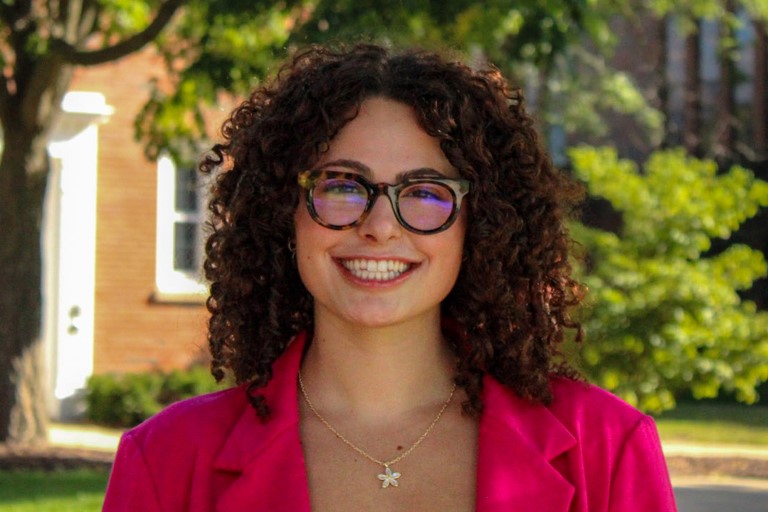Living by a Global Gospel
Both as a history and TESOL student at Wheaton, as well as in his current work, Joshua Savidge ’17, M.A. ’18 actively seeks out ways to bear cross-cultural and interdisciplinary witness to the hope he finds in Christ.
Words: Melissa Schill Penney ’22
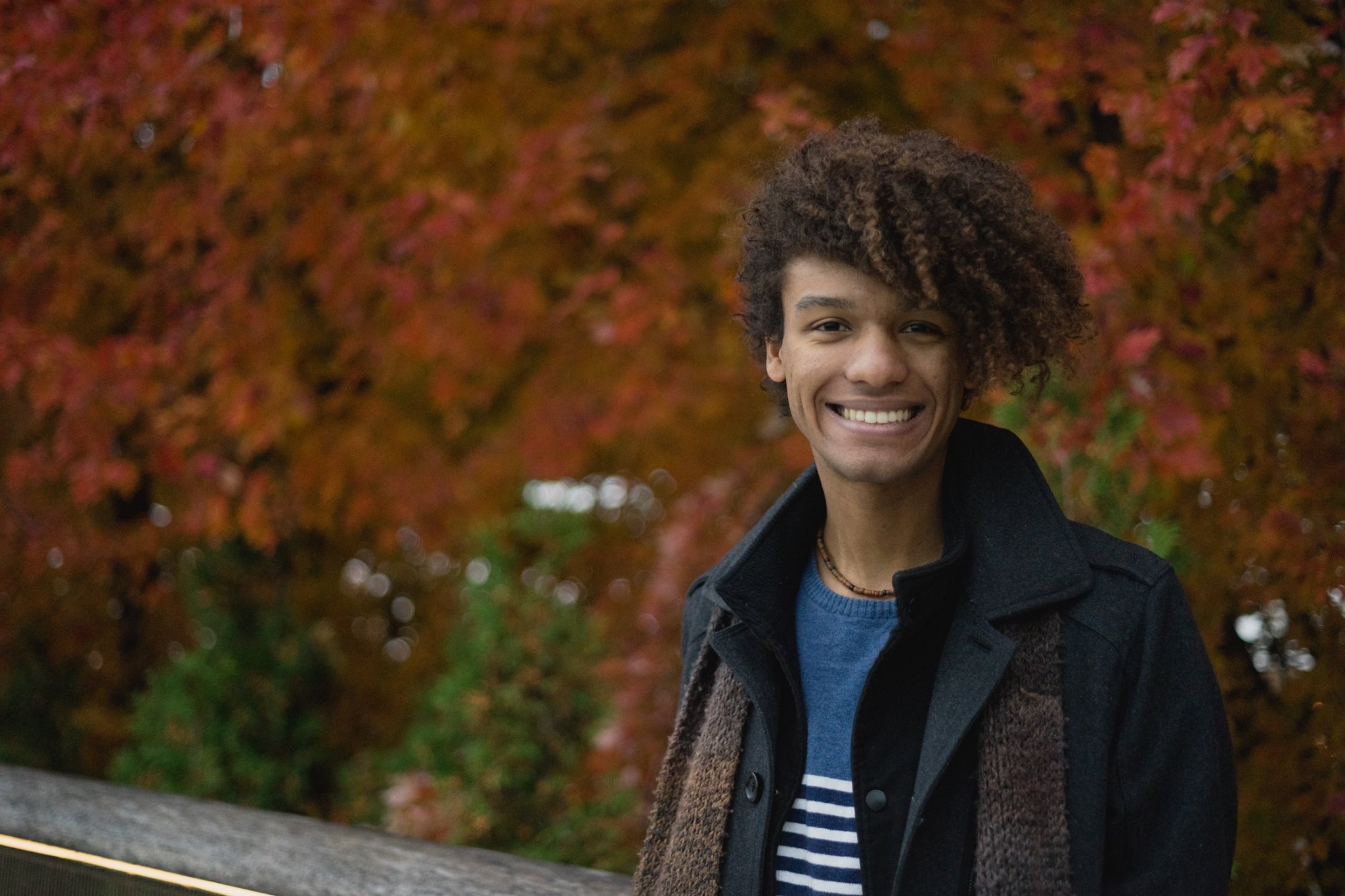
Joshua Savidge ’17, M.A. ’18 came into Wheaton with an interest in Japanese history. One bachelor’s degree in history and one dual master’s degree in intercultural studies and teaching English to speakers of other languages (TESOL) later, he left his years as a student with a greater knowledge and appreciation of not only Japanese history, but also the broader global influences on cultures.
Savidge’s early interest in Japanese history was spurred by media influence. Japanese aesthetics were highly prevalent in media such as Godzilla and Pokémon. Akira Kurosawa’s film Seven Samurai was what finally hooked Savidge.
“It was this beautiful epic, but also so different from the glossy, stylish depictions I’d seen in pop culture growing up,” he said. “It explored really interesting questions about humanity, complicating that noble warrior hero archetype. Seeing such a well-realized world onscreen definitely heightened my interest in understanding the context films like that were set in.”
During his undergraduate years, Savidge began digging into medieval Japanese history, specifically looking at the 1200–1700s AD.
“It was interesting going from a very basic, pretty fictionalized and stereotypical picture of feudal Japanese history to being drawn into the aesthetics, then diving in to learn more about the context: the political, ideological, and philosophical complexities and contradictions,” he said.
Savidge spent his sophomore year in Japan with the Tokyo Christian University East Studies Program, where he studied Japanese culture, church history, and art. He also used the year to seriously study the language, becoming conversational by the end of the program.
“Tokyo Christian University was an interesting and surprisingly intercultural place to be,” Savidge said. The university offers a four-year English language program designed specifically for students from the global south and developing world to learn theology in a Japanese context. The goal of the program is for the students to bring their knowledge and resources back to their home countries after the program’s completion. Between the four-year language students, the short-term study abroad students, and the primary student body, it is a very multicultural university.
After returning from Japan, Savidge sought globally diverse groups within the Wheaton community. From singing in Gospel Choir to hanging out in the Office of Multicultural Development, he found spaces on campus that drew in students from many different cultural backgrounds. Savidge’s experience growing up in a multiracial family and alongside a diverse set of childhood friends also shaped his natural pull toward intercultural spaces.
Wheaton became a space for Savidge to continue his academic exploration of interculturalism. As a history major, his coursework took on a global lens, examining moments in history from numerous ethnic and cultural angles. He also widened his range of courses to include a few peace and conflict studies classes.
“A lot of the coursework at Wheaton really has a global mind to it, which I appreciate,” Savidge said.
In particular, Savidge remembers one lecture by Dr. David Smith, director of the Kuyers Institute for Christian Teaching and Learning at Calvin College, as part of the 2016 Gration Lecture series that made a deep impact on how Savidge understood the importance of global discourse.
“Intercultural relationships, experiences, and community are invaluable in better understanding the gospel,” Savidge said in summary of the talk. “Each person carries with them their unique cultural and personal experiences and bears a unique perspective on the world and on faith that I simply don't have.”
After his TESOL graduate studies, Savidge taught adult ESL classes through College of DuPage and Harper College. His classes included a mix of people with different ethnicities, linguistic abilities, and life circumstances. Some of his students were pursuing English for the sake of daily life interactions, while others were working to improve conversational skills for their career.
Although he has completed his formal academic studies for the time being, Savidge has continued his global education. A primary way is through music. Savidge has eclectic taste in music, listening to a range of artists from all over the world and all kinds of genres from folk to urban contemporary to instrumental. As a musician himself, he draws influence from the global music he listens to, incorporating various textures and sounds in his own compositions. Instrumentally, he incorporates guitar, keyboard, a synthesizer, and some vocals.
During 2020, Savidge composed nine songs, each representing a fruit of the Spirit. As he watched the world become more and more divided—by the pandemic, by politics, by cultural differences—he wanted to remember the things that all Christians found fundamental, “regardless of persuasion or stance,” he explained. “It came back to the fruits of the Spirit: against these there is no law.”
Savidge now works as the education production coordinator for Coffee Quality Institute, a nonprofit dedicated to internationally “improving the quality of coffee and the lives of people who produce it.”
